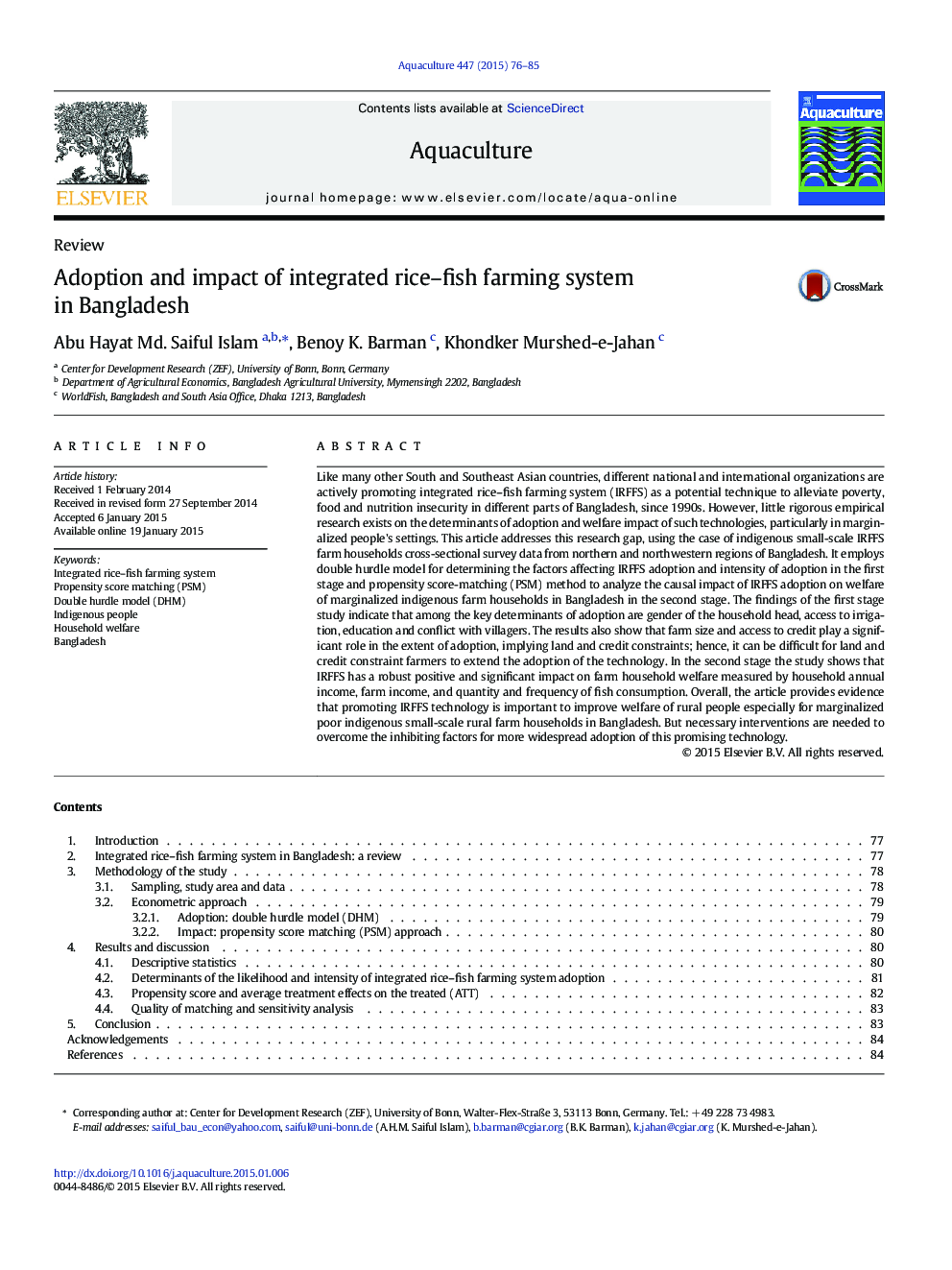| کد مقاله | کد نشریه | سال انتشار | مقاله انگلیسی | نسخه تمام متن |
|---|---|---|---|---|
| 2421593 | 1552840 | 2015 | 10 صفحه PDF | دانلود رایگان |
• Adoption and impact of integrated rice–fish farming system (IRFFS) are evaluated.
• Micro-econometric causal analysis frameworks are developed.
• Complementary inputs such as access to credit and irrigation are the major determinants of IRFFS adoption.
• IRFFS has a robust positive and significant impact on welfare of indigenous farm households.
Like many other South and Southeast Asian countries, different national and international organizations are actively promoting integrated rice–fish farming system (IRFFS) as a potential technique to alleviate poverty, food and nutrition insecurity in different parts of Bangladesh, since 1990s. However, little rigorous empirical research exists on the determinants of adoption and welfare impact of such technologies, particularly in marginalized people's settings. This article addresses this research gap, using the case of indigenous small-scale IRFFS farm households cross-sectional survey data from northern and northwestern regions of Bangladesh. It employs double hurdle model for determining the factors affecting IRFFS adoption and intensity of adoption in the first stage and propensity score-matching (PSM) method to analyze the causal impact of IRFFS adoption on welfare of marginalized indigenous farm households in Bangladesh in the second stage. The findings of the first stage study indicate that among the key determinants of adoption are gender of the household head, access to irrigation, education and conflict with villagers. The results also show that farm size and access to credit play a significant role in the extent of adoption, implying land and credit constraints; hence, it can be difficult for land and credit constraint farmers to extend the adoption of the technology. In the second stage the study shows that IRFFS has a robust positive and significant impact on farm household welfare measured by household annual income, farm income, and quantity and frequency of fish consumption. Overall, the article provides evidence that promoting IRFFS technology is important to improve welfare of rural people especially for marginalized poor indigenous small-scale rural farm households in Bangladesh. But necessary interventions are needed to overcome the inhibiting factors for more widespread adoption of this promising technology.
Journal: Aquaculture - Volume 447, 1 October 2015, Pages 76–85
